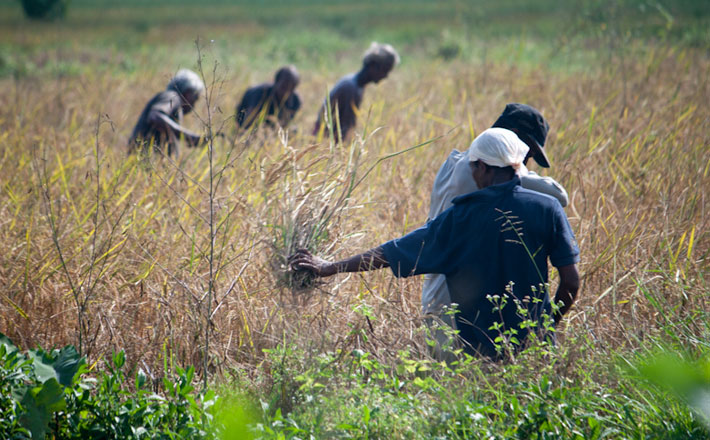Commentary on Jonah 3:10—4:11
Not unlike the older brother of the prodigal son (Luke 15:11-31), Jonah resents the graciousness of Yhwh toward the repentant inhabitants of Nineveh:
He [Jonah] prayed to the LORD, saying, “O LORD! Isn’t this just what I said when I was still in my own country? That is why I fled beforehand to Tarshish. For I know that You are a compassionate and gracious God, slow to anger, abounding in kindness, renouncing punishment. Please, LORD, take my life, for I would rather die than live.” (Jonah 4:2-3 TNK)
Spitefully hurling a standard confessional formula in Yhwh’s1 face (see, e.g., Exodus 34:6-7; Numbers 14:18; Nehemiah 9:17; Psalms 103:8, 17; 145:8; Jeremiah 32:18-19; Nahum 1:3), Jonah tells Yhwh that he would rather die than live to see the Assyrians receive Yhwh’s mercy. So deep was Jonah’s anger toward Israel’s imperial oppressors.
It’s easy to miss the irony and comedic intent in the exchange between Yhwh and Jonah, and in the book more generally. Typically, Israel’s prophets are fiercely obedient to the law, while their audiences are stubborn and recalcitrant sinners, who are quicker to kill the prophet than take seriously his message. Take Jeremiah, for instance: he is told that he will experience so much opposition that Judah’s most powerful officials (priests and kings) would oppose him, and that he would stand with Yhwh alone at his side (Jeremiah 1:17-19).
Unlike Jeremiah, however, who his typical of Israel’s prophetic tradition, Jonah is not only resistant to Yhwh’s will, he actually succeeds in winning over his audience, and he does so with a five word sermon: “Forty days more and Nineveh will be overturned” (Jonah 3:4). (And people say Lutheran sermons are short). What’s even more astonishing is that Jonah’s sermon doesn’t even mention the possibility of mercy! What kind of topsy turvy, whale-of-a-tale is this? A reluctant, bitter prophet and repentant sinners? Welcome to the world of Jonah, where idolatrous sinners repent and Israelite prophets resent their deity’s most fundamental attributes.
Despite its clearly humorous and ironical aspects, Jonah’s resentful response to Yhwh’s mercy actually echoes a sentiment present in the larger culture, namely, disdain for the Assyrian empire. This view is expressly and graphically depicted in the book of Nahum, which relishes in Yhwh’s destruction of Nineveh. Nahum was the oracle Jonah hoped to give.
But can we really blame Jonah for feeling this way? The Assyrians were responsible for destroying the Northern Kingdom of Israel, subjugating, taxing, and oppressing the Southern Kingdom, destroying the Judahite city of Lachish, and otherwise wreaking havoc across the ancient Near East.
If that weren’t enough, the Assyrian kings proudly boasted about and displayed their violent conquests of foreign lands. The scene below (see Figure 1), in fact, comes from Room XXXVI of Sennacherib’s royal palace at Nineveh. It depicts Assyrian soldiers (the guys with the pointed hats!) flaying naked Judahite men. Their thin, naked bodies are eerily similar to the horrific images that emerged during and after WWII. Sennacherib dedicated an entire room, in fact, to his destruction of Lachish. Could you forgive such a people?
Jonah is not alone in his anger toward the Assyrians. In fact, when Nineveh finally fell in 612 BCE, its conquerors (the Babylonians and the Elamites) purposefully damaged images of the Assyrian kings as an act of damnatio memoriae (see Figure 2.). Jonah, it would seem, was not alone in his anger toward the Assyrians.
Nineveh, it would seem, is not the only one in need of repentance. In order to win back the wayward Jonah, Yhwh creates a scenario that is intended to teach the reluctant prophet a lesson in divine mercy and compassion.
After preaching his message, Jonah left Nineveh and perched himself to the east of the city to see what would happen, no doubt hoping that Yhwh would blast the city to oblivion (Jonah 4:5). Instead of raining down destruction on Nineveh, however, Yhwh turns his attention to Jonah. Jonah is given a plant to provide him with shade; the following day, however, Yhwh sends a worm to smite the plant, along with a sultry east wind to “beat down on Jonah’s head” (Jonah 4:7-8). Taking advantage of Jonah’s acute discomfort, Yhwh steps in with a lesson:
Then God said to Jonah, “Are you so deeply grieved about the plant?” “Yes,” he replied, “so deeply that I want to die.” Then the LORD said: “You cared about the plant, which you did not work for and which you did not grow, which appeared overnight and perished overnight. And should not I care about Nineveh, that great city, in which there are more than a hundred and twenty thousand persons who do not yet know their right hand from their left, and many beasts as well!” (Jonah 4:9-11 TNK)
Just as the giant fish is commissioned to place Jonah’s feat back on the path of the prophet, so the wind, the worm, and the weed are commissioned to place Jonah back on the path of compassion, and to remind him that Yhwh alone decides to whom he will give mercy. But the human heart clings to bitterness like a dog to a fleshy bone. It takes root so deeply within us that we would much rather die than forgive, cling to pride than embrace mercy. We never know, in fact, how Jonah responds to Yhwh’s question. The matter is left completely open-ended, without response and without resolve — and this may be purposeful.
Whatever the case may be, one thing is clear: the Ninevites are not the only ones pursued by Yhwh’s mercy. God stays with Jonah, the bitter and unforgiving prophet, extending mercy to the merciless and compassion to the one whose heart is set on wrath.
Figures
Notes:
1 Out of respect for our Jewish sisters and brothers, I do not vocalize the divine name.




September 21, 2014